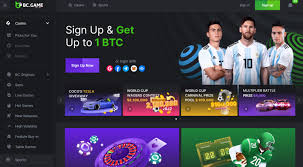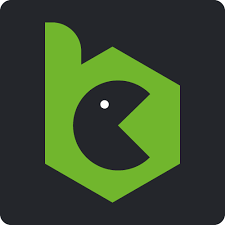
Everything You Need to Know: Your Comprehensive Guide
In today’s fast-paced world, the quest for knowledge is more critical than ever. Whether you’re looking to dive into a new subject, improve your skills, or simply satisfy your curiosity, having access to a reliable source of information is key. In this article, we will cover a wide range of topics and provide you with everything you need to know, including practical tips and insights that you can apply in your daily life. For additional resources, you might find the Everything You Need to Know About the BC App bc-app quite useful.
1. The Importance of Lifelong Learning
Lifelong learning is the continuous, voluntary, and self-motivated pursuit of knowledge for personal or professional development. It’s a crucial part of personal growth and is increasingly valued in today’s job market. Embracing lifelong learning can lead to better job prospects, increased job satisfaction, and a more fulfilling life overall.
1.1. Benefits of Lifelong Learning
- Enhanced job skills
- Increased adaptability to change
- Improved mental well-being
- Greater social engagement
2. Health and Wellness
Your health is undoubtedly one of the most important aspects of your life. Understanding the principles of health and wellness can help you lead a balanced life. This section will outline essential components including nutrition, exercise, and mental health.
2.1. Nutrition
A balanced diet is crucial for maintaining health. It provides your body with the necessary nutrients to function effectively. Here are some fundamental dietary tips:
- Incorporate a variety of fruits and vegetables into your meals.
- Limit sugar and saturated fats intake.
- Stay hydrated by drinking enough water throughout the day.
2.2. Exercise
Regular physical activity is essential for overall health. Aim for at least 150 minutes of moderate aerobic exercise each week. Choose activities that you enjoy to stay motivated.
2.3. Mental Health
Mental health is equally important as physical health. Engaging in mindfulness practices such as meditation, yoga, or simple breathing exercises can help maintain and improve mental well-being.
3. Financial Literacy
Understanding financial concepts is essential for managing your resources wisely. Financial literacy allows you to make informed decisions regarding budgeting, saving, investing, and managing debt.
3.1. Budgeting
Creating a budget helps you track your income and expenses. It serves as a financial roadmap, ensuring you live within your means while saving for future goals.
3.2. Saving and Investing
Building an emergency fund is the first step toward financial security. Simultaneously, consider investing in diverse financial instruments to grow your wealth over time.
4. Technology
Understanding technology is increasingly important in today’s digital age. Familiarity with essential technological tools can enhance your productivity and open doors to new opportunities.
4.1. Staying Updated
Keep abreast of the latest technological trends and developments. This knowledge can make you a more competitive candidate in the job market and may enhance your personal and professional life.
4.2. Cybersecurity Basics
With the rise of digital platforms, understanding cybersecurity is crucial. Protect your personal information by using strong passwords and being cautious with online activity.
5. Effective Communication Skills
Strong communication skills are essential in both personal and professional environments. They help to build relationships and foster collaboration.
5.1. Active Listening
Active listening involves fully concentrating on what is being said rather than just passively hearing the message. This skill can greatly enhance the effectiveness of your communication.

5.2. Nonverbal Communication
Your body language, eye contact, and tone of voice all contribute to how your message is perceived. Being aware of these nonverbal cues can improve your communication significantly.
6. Time Management
Time management is crucial for productivity and success in various aspects of life. Effectively managing your time allows you to prioritize tasks and minimize stress.
6.1. Setting Goals
Establishing clear and achievable goals can provide direction and motivation. Utilize the SMART criteria (Specific, Measurable, Achievable, Relevant, Time-bound) for setting your objectives.
6.2. Tools for Time Management
There are numerous tools available for time management, from simple planners to advanced apps designed to help you stay organized and on track.
7. Building Relationships
Strong relationships can improve your personal and professional life. Building connections requires effort and effective interpersonal skills.
7.1. Networking
Networking is essential for career advancement. Attend conferences, join professional organizations, and connect with peers in your industry.
7.2. Conflict Resolution
Learning to navigate conflicts constructively is vital for maintaining healthy relationships. Practice empathy and strive for win-win solutions when disagreements arise.
8. Conclusion
In conclusion, the journey of acquiring knowledge is an ongoing process that enriches your life in countless ways. Whether you’re focused on personal development, health, finance, technology, communication, time management, or relationships, integrating the insights from this guide into your daily routine can help you lead a more fulfilling and successful life. Embrace this pursuit of knowledge, and remember, understanding everything you need to know is a lifelong adventure.

Leave a Reply